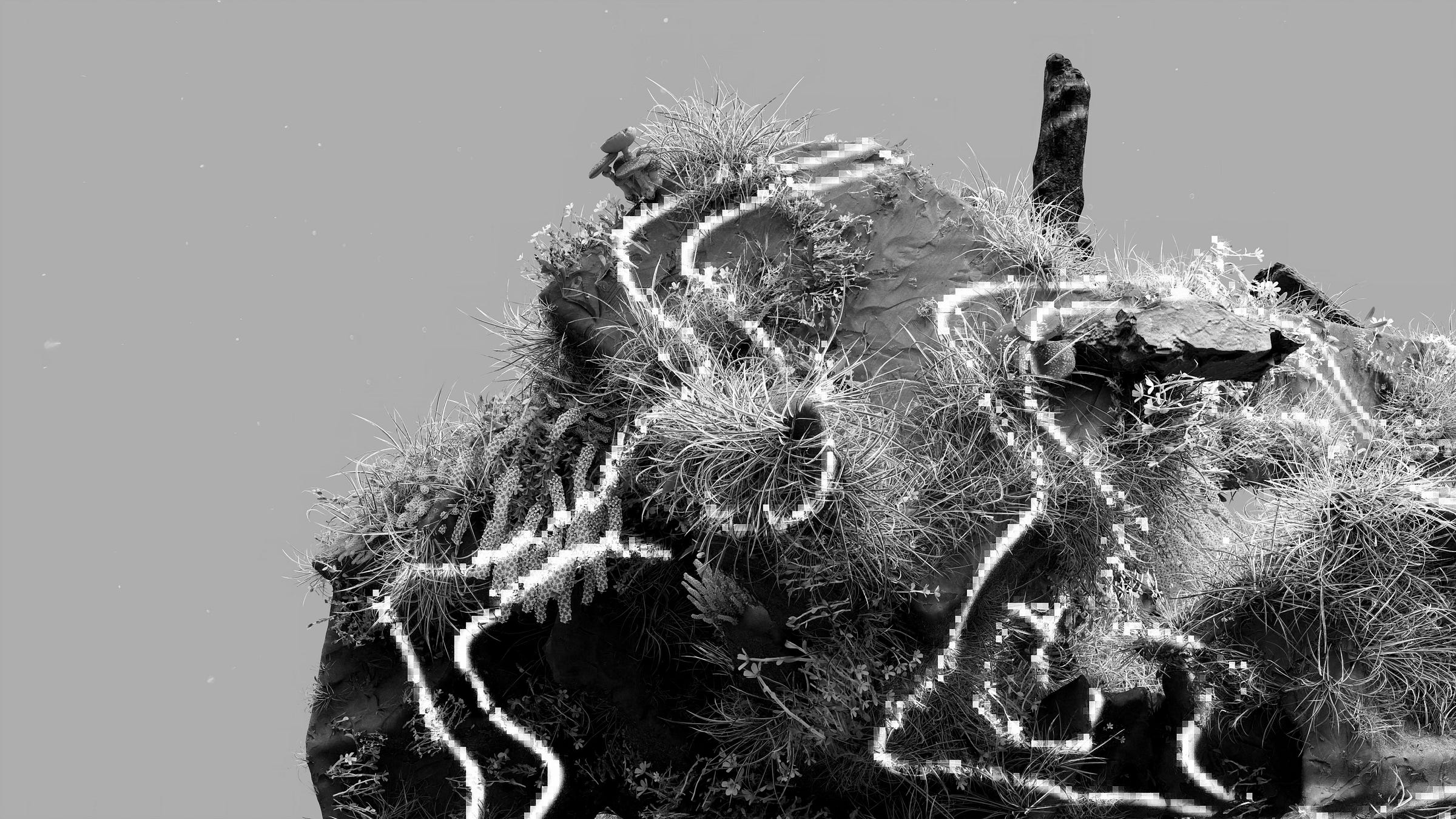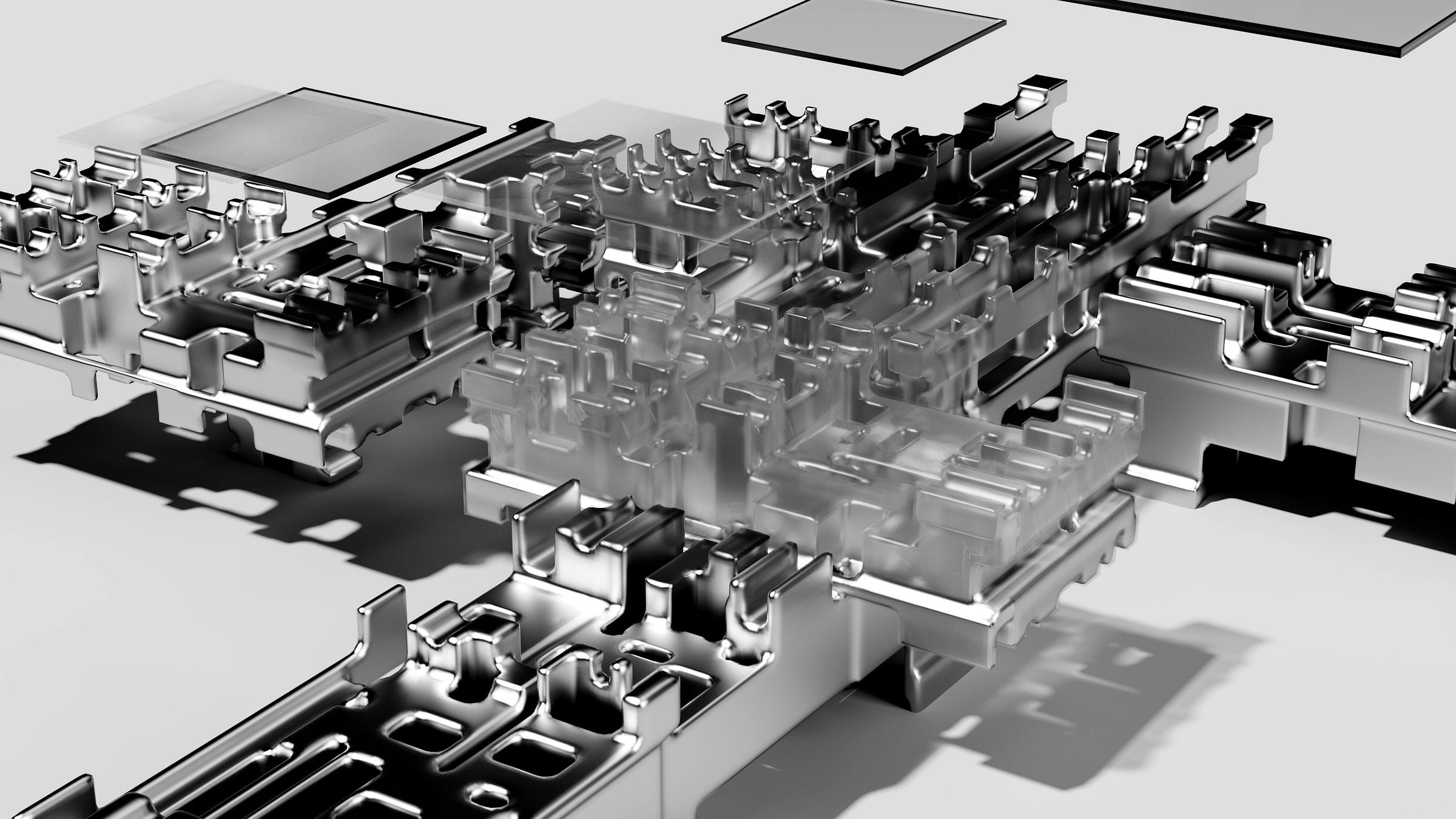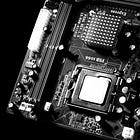AI, capitalism, and the collapse of industrial society
Capitalism turns all technological breakthroughs into nightmare fuel. Can artificial intelligence escape its grasp?

The future they promised was sleek — chrome bodies gleaming under manufactured suns, autonomous flying cars whisking back and forth, the Solar System conquered and subdued, post-scarcity abundance, a retro-futurist utopia unmolested by hunger and poverty. Indeed, a world optimized fully, humming with the quiet efficiency of incomprehensible code. Progress was to be a never-ending cascade of algorithmic breakthroughs, each unlocking new frontiers of ease and abundance.
Then, of course, came neoliberalism and the intensification of capitalism’s irresolvable internal contradictions, leading to our current very real dystopia.
But are we back on track now? Can artificial intelligence lead the way when human one has failed? Can we avoid both the corporate Cyberpunk dystopia and the utter collapse of industrial society in the form of climate annihilation and forever-wars?
The promise of utopia
The recent dawn of the AI era isn't yet an invasion; it's a slow burn. Each breakthrough whispers promises that prickle the spine. Algorithms first conquered ancient games, now spit out prose with chilling fluency, generate photorealistic images and videos both alien and hauntingly beautiful. The uncanny valley appears traversed, left behind forever. This isn't the clunky AI of pop culture, but a mind — a real mind; emergent properties unexpected, illuminating pathways to understanding our own consciousness, evolving at a speed that feels both exhilarating and monstrous.
The creative fields, once thought the exclusive domain of the human touch, are now fertile ground for algorithms. Will the next great novelist be a neural network? Will a song, indistinguishable from a human artist's, lull us into passivity with its manufactured perfection? Talk to the newest renditions of OpenAI’s ChatGPT or Google’s Gemini, let Midjourney generate renaissance art, watch what Sora, a new text-to-video generator, creates, make music with Suno AI, and then tell me you aren’t fucking impressed and scared shitless.
The potential is undeniable (though many still do deny it). Digital intelligence that can crunch and transform vast multimodal data in seconds could optimize everything from supply chains to cancer treatments and entertainment. If harnessed for the common good, AI could free us from the drudgery that has haunted humanity since emerging from the abyss. Imagine a world where machines handle the mundane and the dangerous, where human labor is less about survival and made-up white-collar bullshit and more about community, exploration, and the simple joy of purposeful existence.
This is where the dream of a post-scarcity future flickers to life. Universal Basic Income (UBI), once dismissed as a utopian left-wing fantasy (see Fully Automated Luxury Communism (FALC) and similar), is rapidly gaining traction as the gulf between machine capability and demands on both white- and blue-collar labor narrows and vanishes. Dated studies (newer ones are not available) suggest widespread automation could displace up to 800 million workers globally by 2030 — a staggering, yet conservative figure that demands a radical rethinking of our economic systems. The elimination of jobs should be a good thing. Yet under capitalism, all that is good is twisted and turned into ruling-class greed.
Of course, the transition to something like UBI would be messy, the promises tinged with an inevitable unease. I feel that before anything changes to the better class war must happen and resolve the contradictions. Only then can we move on.
The promise of dystopia
Then there's the specter of AGI (Artificial General Intelligence) — an intelligence as complex and adaptable as our own — followed by the vastly superior ASI (Artificial Superintelligence). The implications are dizzying: a mind that can strategize, predict, and manipulate on a scale we might never understand. In the hands of the current capitalist-imperialist power brokers (supposing the AI doesn’t turn on them) such an entity would be a weapon of unimaginable control, the ultimate surveillance tool. It's here that AI's potential as a force for species-wide liberation curdles into a nightmare of a new fascism — a prospect that, as depressing as it is, appears so much more tangible than any utopia. This is a different kind of revolution, an existential threat masquerading as the next step in human ingenuity.
No, before we can dream of anything at all, any future that is not slavery and suffering, we must resolve capitalism. A daunting task, perhaps unsolvable.
Yet the war isn't solely between AI and capitalism. It's also between the technology's supposed exponential growth and the unraveling (caused, of course, by capitalism itself) of the systems upon which it depends. Energy grids already groan under the immense power demands of server farms, with each new generation of AI models requiring more and more scarce resources to function. Shortages, extreme weather linked to climate change, wars, hunger, economic decline, political division caused by inequality and disillusionment — collapse threatens to cripple and destroy the delicate machinery the AI revolution requires. Already we have killed most lifeforms on this planet, destroyed most ecosystems. Will we raze even the feeble rest to fuel a potential nightmare?
Using AI for good appears impossible under capitalism. Yet the collapse of industrial society could extinguish both, rendering the discussion obsolete.
AI after capitalism
We have established that, paradoxically, the very collapse-driving forces that might dismantle capitalism could also stall the full flowering of sentient machines. Yet perhaps this looming chaos presents a different kind of opportunity.
In a post-collapse world in which centralized power has crumbled, AI could be harnessed on a smaller, more decentralized, more localized scale. Neural networks could map sustainable resource use, drive beneficial technological advances, aid truly democratic political decision-making (see Cybersyn), help communities rebuild infrastructure, heal ecosystems, bridge language gaps in a world forced into mass migration. If AI could be transformed, democratized, and made vastly more energy efficient the possibilities would appear endless. One might dream even of Solarpunk.
A gamble for the future of the human race (and planet Earth)
The truth is, we're gambling on an existential scale, unable to stop ourselves. It's possible both AI and societal breakdown progress in tandem, creating a crucible of unimaginable complexity. The optimist might hope that in this chaos, both human and machine intelligence could create a more resilient, equitable way of being. The pessimist sees a world in which the remnants of human society are managed, manipulated, and ultimately discarded by creations that have eclipsed our significance. The realist sees neither.
The clock is ticking. Whether AI ushers in utopia or hastens our demise depends, as it always has, on how we choose to wield the incredible power we unleash upon the world. Our track record is not great. We will rediscover, as we always do, that the greatest existential threat does not stem from machines or technologies, but the relentless logic of a system that cannibalizes itself and anything, even its creators, in the name of boundless greed.
Thank you for reading,
Antonio Melonio
You can also support my ever-lasting pursuit of freedom and self-determination on Patreon (starting at $2 a month), or leave a tip on PayPal. Thank you so much.
What to read next:











I think the second half of the section "The promise of dystopia" is the most likely. Infrastructure for AI will collapse before it can materialize civilization-transforming attributes. Localized AI wouldn't have enough input to do what even the current generation is doing. Could be helpful in planning as you said, but that assumes power generation remains steady enough to do so, and I have a hard time imagining us generating enough excess power above and beyond whatever is needed just for survival.
This is the first of your work that I read, and you appear to be taking on some huge topics here. Restacked this and subscribed , thank you.